Challenges for a local authority prosecutor
Who can show up?
Placement at home under a care order
May I introduce you to proportionality: Balancing rights and responsibilities in law
The Welsh Language and the Court of Protection
Anticipating the reasonableness of responses – time-specific capacity in action
ASB Case Reviews: updated statutory guidance
The meaning of ‘vexatious’ / ‘manifestly unreasonable’
Martyn's Law marks a new chapter in school safety
Deprivations of liberty and young offenders
Litigation as stewardship: How UK pension funds including LGPS are shaping corporate accountability
Revisiting Cheshire West
Wardship and Inherent Jurisdiction: Decisions involving competent 17-year-olds
Public children law case update – Autumn 2025
Post-placement contact under the Adoption and Children Act 2002
Six months in, six key differences: How the Procurement Act measures up to the Green Paper
Compulsory purchase compensation reforms: the next stage
Climate legal risk and property: what local authorities need to know
The £5bn Pride in Place programme – what does it mean for local authorities?
How not to control second homes
Twelve New Towns for the Future
Authority to participate in legal proceedings and rights of audience
Artificial intelligence in Education and EHC Plans
Just what is it about today’s planning system that makes appealing so … appealing?
High Court on highway widths
Risk assessment – a safeguard to fairness
Appealing the outcome of a fact-finding hearing in care proceedings
Parental obstruction of care
School exclusions – CCTV and police investigations?
Transparency in the Court of Protection
Break Stuff – The decision in On Tower UK Ltd v British Telecommunications plc [2025] and the impact in respect of break rights in Code Agreements
Tackling youth ASB in social housing
Understanding part-heard hearings in civil litigation
How AI could rewrite homelessness law
Social and affordable housing as a driver of economic growth
Suitability of accommodation offered in performance of the prevention duty
Key updates to the Administrative Court Guide
A gem of a case on section 106 mortgagee exclusion clauses?
Why are so many schools and colleges suspending pupils?
PFI expiry and handback
Civil protective orders and gangs
"Build baby build" – How MHCLG will change now Steve Reed is Secretary of State
Dual-hatted members and local government reorganisation
Hillsborough Law: What local authorities need to know
School admissions: A guide to parental rights
A hard road
Gypsy/Traveller caravan sites and supply of pitches
Environmental enforcement powers: Walker v Chelmsford City Council [2020] EWHC 635 revisited
Infrastructure project ‘fast-track’ process ‘re-design’ proposed
Below-threshold contracts
A different kind of target
DOLS and the Young Offender: Care or Custody?
Brief enquiry of age
Fact-finding in care proceedings: lessons from G (A Child)
School trips: key legal considerations
Urgent Capital Support: the key points
All things PFI
Algorithm and State: Automated decision-making in the UK Public Sector
The Nuclear Regulatory Taskforce Interim Report
Public Law Case Update Q2 2025
Data protection damages: Equiniti in the Court of Appeal
Pension Schemes Bill 2025 series – a framework for the future of the LGPS
Respondent put to election over CCFA by High Court
Devolution and Community Empowerment Bill (“the Bill”)
Planning headline judgements over the summer
Local authority leisure services and the agency model: What is the impact two years on?
“A presumption by any other name…”
Nationally significant infrastructure projects, the EIA regime and propriety in decision-making
Imposing the brakes on car cruising
Aarhus cost protection in traffic order challenges
High Court backs Newham’s Compulsory Purchase of Final Flat in Redevelopment Scheme
Late costs budgets and sanctions
The tale of the snail and the much-delayed rail
Don’t forget about those PD rights!
Housing law case alert: August 2025
Court awards pre-allocation costs in housing disrepair claim despite omission of CPR 46.11
Social housing fraud litigation in the context of Airbnb-style lettings
Epping Forest in the Court of Appeal
Statements of case in housing disrepair claims
Strategic partnerships between local authorities and developers
Birmingham v Lee revisited in allocation appeal
Statutory notices and the perils of non-compliance
Changes to the Asset of Community Value regime
School behaviour policies and disciplinary sanctions
Human rights, health and care in the next Parliamentary session
Banter in the classroom
Tim Care evaluates the payment obligations for contracting authorities under the Procurement Act 2023 including the requirement to publish a Payment Compliance Notice as well as the regulations surrounding electronic invoicing and payment.
The Procurement Act 2023 (the Act) came into force on 24th February 2025.
The Act, in particular, revoked the following:
- Public Contracts Regulations 2015 (PCR)
- Concession Contracts Regulations 2016
- Utilities Contracts Regulations 2016
Further information on Payment Compliance Notices and regulations surrounding electronic invoicing and payment.
Implied payment terms
The Guidance states that he objective of Section 68(2) is to oblige contracting authorities to pay suppliers’ invoices within 30 days from the day the invoice is received or, if later, by the day on which the payment becomes due in accordance with the invoice.
Section 68(2) does not apply if the contracting authority considers the invoice invalid or disputes the invoice. If this is the case, the contracting authority must notify the payee of the same without undue delay.
Payment Compliance Notice
From 1st October 2025, contracting authorities will be required to publish a Payment Compliance Notice on the Central Digital Platform within 30 days of the end of a ‘reporting period’ (Section 69(1)). Section 69(3) states that a reporting period begins on the day on which Section 69 comes into force (1st October 2025) and ends on the following 31 March or 30 September, whichever is earlier. Following that, the reporting period is each successive six months.
The purpose of a Payment Compliance Notice is to provide transparency over how promptly authorities pay their suppliers in accordance with Section 68(2).
Regulation 38 outlines that the Payment Compliance Notice must include (among others):
- the average number of days taken to make payments under public contracts during the reporting period;
- the percentage of invoices paid in accordance with the term in Section 68(2) of the Act during the reporting period; and
- a statement of the director or similar officer approving the Payments Compliance Notice.
Calculating compliance
Contracting authorities will need to calculate the number of days it takes them to pay each relevant invoice. The Guidance explains that ‘Day 1’ is the day after the Invoice Day, which is the day a contracting authority receives an invoice.
Regulation 38(4) provides that payment is made when it is received by the supplier. If there is a delay in receipt for which the contracting authority is not responsible, then the regulation provides that payment is made when it would have been received without that delay.
When calculating the average number of days to pay an invoice, as well as the percentage of invoices paid in accordance with the Act, contracting authorities should only include invoices that were paid during the reporting period (regardless of when they were received). Invoices which remain unpaid at the period end, even if received in that reporting period, should be excluded.
However, where a valid and undisputed invoice is received during the reporting period and the contracting authority was required to pay it in that reporting period (i.e. because the deadline for payment was a date within the reporting period), but did not pay it, that invoice is counted as an invoice that should have been paid and therefore included in the calculation.
Invoices which are partially paid should be treated as unpaid and only reported as paid within the relevant reporting period in which they are fully paid. If the supplier has agreed to the partial payment, the invoice is considered paid on the date the payment was made or, if later, the date the supplier agreed to the partial payment.
If the parties agree to pay in instalments from the outset, each instalment is treated like a separate invoice. The 30-day payment clock starts from receipt of the first invoice (the first instalment). However, if instalments arise because a supplier later agrees to defer part of an already-issued full invoice, the clock still runs from the original invoice’s receipt date.
Electronic invoicing
Section 67 provides that a term is implied into every public contract that requires contracting authorities to accept and process electronic invoices that are in the ‘required electronic form’ and are not disputed. An electronic invoice is defined in Section 67(3) as an invoice which is issued, transmitted and received in a structured electronic format that allows for its automatic and electronic processing.
The Guidance stresses that contracting authorities and suppliers are not prevented from agreeing an alternative invoicing system, for example a paper invoice to be sent by post to the contracting authority. However, suppliers will always have the right to submit an electronic invoice and for that to be processed for payment, provided it is in the required electronic form and not disputed.
What does this mean?
From 1st October 2025, contracting authorities will need to establish and maintain robust processes to capture and calculate payment data accurately for every six-month reporting period. Authorities will need to prepare a Payment Compliance Notice for publication on the Central Digital Platform, which must be approved by senior leadership. While these measures promote transparency, consistency, and prompt supplier payments, they place greater responsibility on contracting authorities to maintain accurate records, monitor compliance continuously, and invest in systems and training to avoid reputational or regulatory risk.
Tim Care is a partner at Ward Hadaway.
Lawyer - Property
Senior Lawyer - Contracts & Commercial
Trust Solicitor (Public & Healthcare Law)
Senior Information Governance and Data Protection Officer
Trust Solicitor (Employment & Contract Law)
Contracts & Procurement Lawyer
Locum roles
 Institutional landlord series: Possession – High Court Enforcement - 5 Pump Court
Institutional landlord series: Possession – High Court Enforcement - 5 Pump Court
22-10-2025 4:00 pm
Online (live)
 Public Sector Insights: The Regulation of Fertility Treatment - Blake Morgan
Public Sector Insights: The Regulation of Fertility Treatment - Blake Morgan
28-10-2025
Online (live)
 Getting it right first time: Making lawful decisions Webinar Series - Public Law Project
Getting it right first time: Making lawful decisions Webinar Series - Public Law Project
04-11-2025 9:00 am
Online (live)
 Institutional landlord series: Costs Recovery and Legally Aided Parties - 5 Pump Court
Institutional landlord series: Costs Recovery and Legally Aided Parties - 5 Pump Court
05-11-2025 4:00 pm
Online (live)
 From frustration to finality: A tactical guide to Civil Restraint Orders - Landmark Chambers
From frustration to finality: A tactical guide to Civil Restraint Orders - Landmark Chambers
06-11-2025
Online (live)
 Planning High Court Challenges 2025 Webinar Series - Session 1: Environmental Issues - Landmark Chambers
Planning High Court Challenges 2025 Webinar Series - Session 1: Environmental Issues - Landmark Chambers
10-11-2025
Online (live)
 Introduction to the Mental Health Act, Code and Tribunals - Peter Edwards Law Training
Introduction to the Mental Health Act, Code and Tribunals - Peter Edwards Law Training
12-11-2025
Online (live)
 Devonshires’ Housing Management & Property Litigation Conference 2025 - Devonshires
Devonshires’ Housing Management & Property Litigation Conference 2025 - Devonshires
13-11-2025 9:30 am
East Midlands
 Annual Compulsory Purchase and Compensation Seminar 2025 (Hybrid) FTB - Francis Taylor Building
Annual Compulsory Purchase and Compensation Seminar 2025 (Hybrid) FTB - Francis Taylor Building
17-11-2025
London
 Planning High Court Challenges 2025 Webinar Series - Session 2: Practice and procedure - Landmark Chambers
Planning High Court Challenges 2025 Webinar Series - Session 2: Practice and procedure - Landmark Chambers
17-11-2025
Online (live)
 HMPL Building Blocks: Section 20 Consultation Requirements and Best Practice - Devonshires
HMPL Building Blocks: Section 20 Consultation Requirements and Best Practice - Devonshires
18-11-2025
Online (live)
 Avoiding and defending Judicial Review – Reflections and case law updates - 3PB
Avoiding and defending Judicial Review – Reflections and case law updates - 3PB
19-11-2025
Online (live)
 Becoming a Mental Health Act Administrator - The basics - Peter Edwards Law Training
Becoming a Mental Health Act Administrator - The basics - Peter Edwards Law Training
20-11-2025
Online (live)
 Planning High Court Challenges 2025 Webinar Series - Session 3: Substantive law - Landmark Chambers
Planning High Court Challenges 2025 Webinar Series - Session 3: Substantive law - Landmark Chambers
24-11-2025 10:30 am
Online (live)












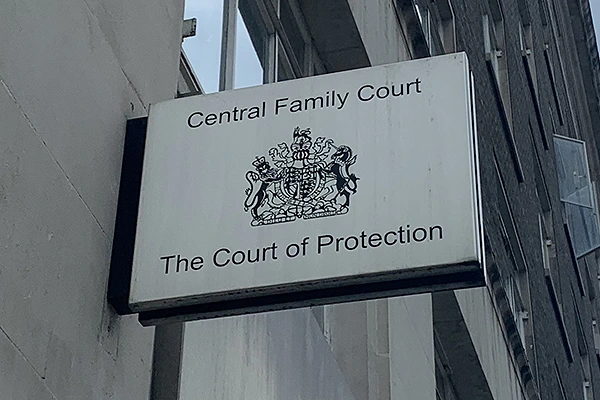





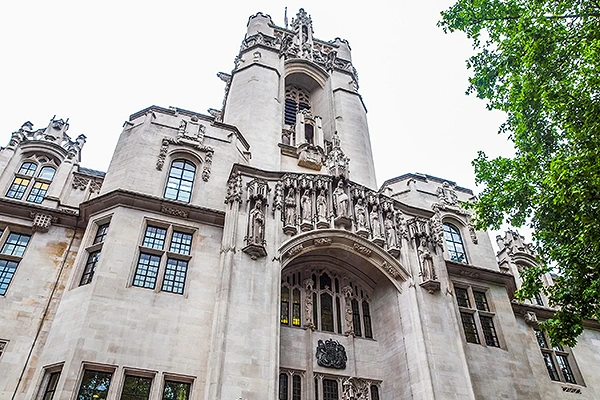









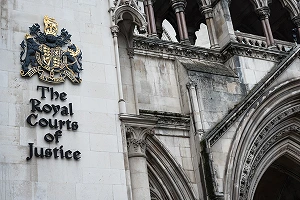






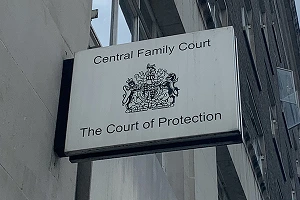
![Break Stuff – The decision in On Tower UK Ltd v British Telecommunications plc [2025] and the impact in respect of break rights in Code Agreements](/images/thumbnails/raxo/tb-w300-h200-cut-int-2825fbef2250bcf14cac590a4433cecf.webp)







































































































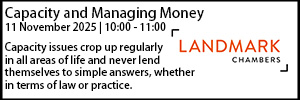







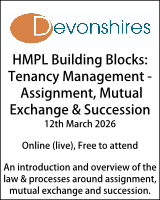
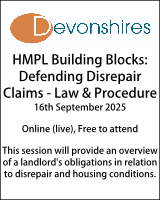

 CUBAS Comprehensive Training & Licencing (Swindon), October 2025
CUBAS Comprehensive Training & Licencing (Swindon), October 2025  Property Law Roadshow 2025 - Cardiff - St John's Chambers
Property Law Roadshow 2025 - Cardiff - St John's Chambers  Planning Enforcement Nuts & Bolts - Ivy Legal
Planning Enforcement Nuts & Bolts - Ivy Legal  Certificate of Lawfulness (LDC) - Ivy Legal
Certificate of Lawfulness (LDC) - Ivy Legal  Hugh James Housing Week 2025
Hugh James Housing Week 2025  Planning Day 2025 - Cornerstone Barristers
Planning Day 2025 - Cornerstone Barristers  Annual Fraud Conference 2025 - Oxford Investigation Service
Annual Fraud Conference 2025 - Oxford Investigation Service  Proportionality after Shvidler - Francis Taylor Building
Proportionality after Shvidler - Francis Taylor Building